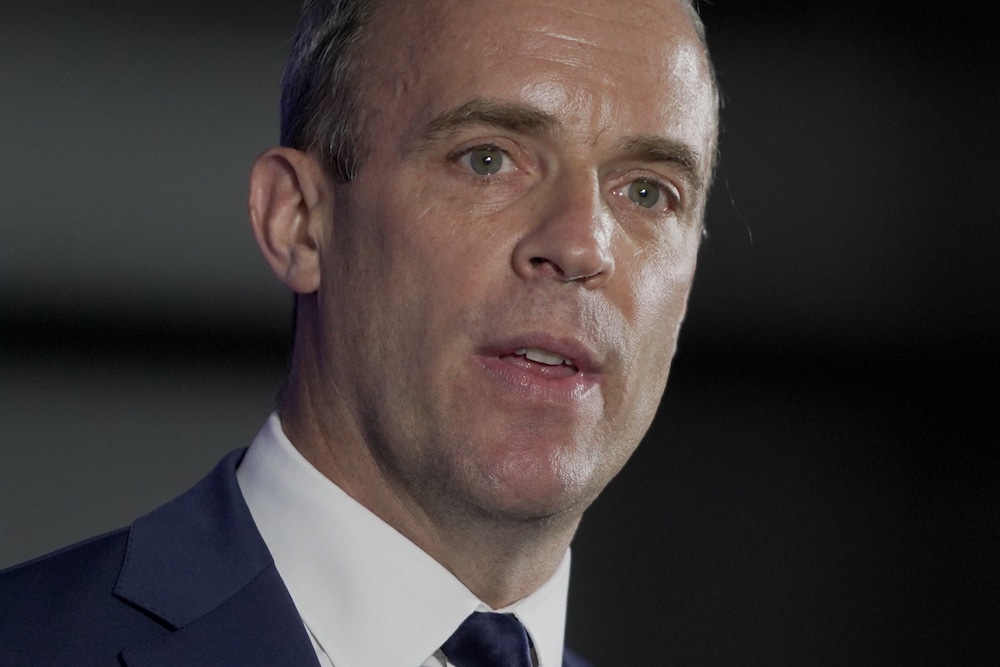Justice secretary and deputy prime minister Dominic Raab. (AFP via Getty/ NIKLAS HALLE’N)
Justice secretary and deputy prime minister Dominic Raab is reportedly planning to house trans prisoners based on their genitals.
A story released by The Mail on Sunday quoted a host of “sources” and “insiders” who reported that Raab had developed a policy to “ban” trans women from women’s prisons.
The story was accompanied by photos of Karen White, a transgender prisoner who was convicted of sexually assaulting women in prison. The crimes occurred several years ago, but White is still regularly presented by the media as proof that trans women housed in women’s prisons are predatory.
Despite the scaremongering, according to the Ministry of Justice there are 146 trans women prisoners in all of England and Wales, as of April 2021.
Of these, just three are housed in women’s prisons, with the rest forced to remain in men’s facilities.
More prejudice from the government. Again, all trans prisoners being impacted by one individual. And some info on what really makes prisons unsafe (and it ain’t trans people): https://t.co/bPf93Uw8xs https://t.co/Qqi48MflH7
— Trans Actual (@TransActualUK) August 7, 2022
Giving slightly more detail, a spokesperson from the Ministry of Justice told the newspaper that there would be changes to policy when it comes to trans prisoners, and that a distinction would be based on genitals. Exceptions would be made if signed off by a minister.
They said: “Having reviewed the arrangements in July, the justice secretary directed changes so transgender prisoners with male genitalia are not housed with other biologically born women in the female prison estate, unless specifically signed off by a minister.
“Once confirmed by the new government in September, it would be implemented as soon as possible.”
The Mail on Sunday also reported that the policy will mean trans women can be pulled out of women’s facilities, even if already housed there.
In 2021, Britain’s High Court reaffirmed that trans women should be housed in women’s prisons.
The judicial review against the government was launched in 2020 to determine whether the Ministry of Justice’s policy on the care and management of trans prisoners was discriminatory against cis women.
In the case, the judge ruled that trans-inclusive policies are “capable of being operated lawfully, and in a manner which does not involve unjustified or disproportionate interference with the Convention rights of women prisoners”.
